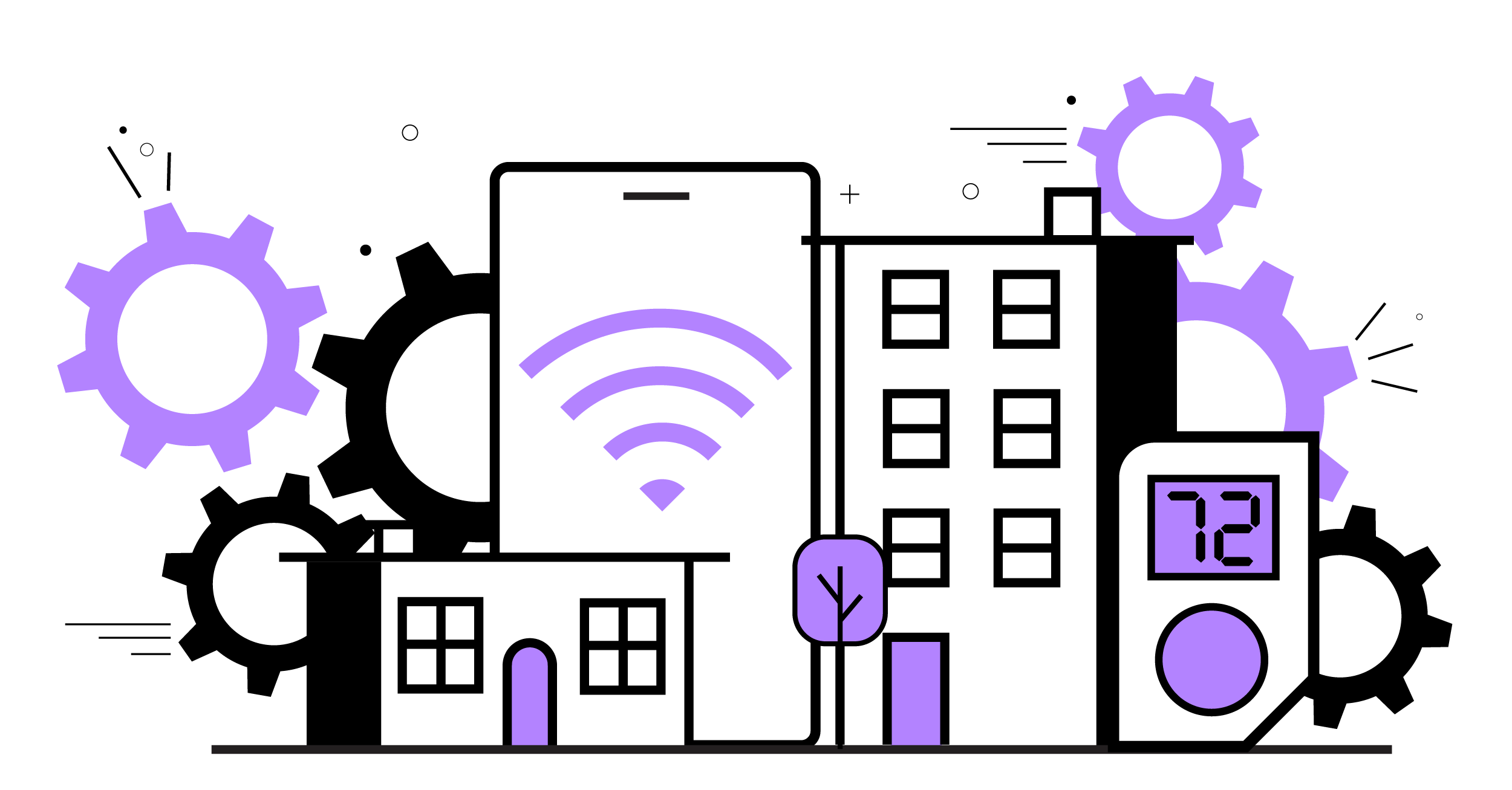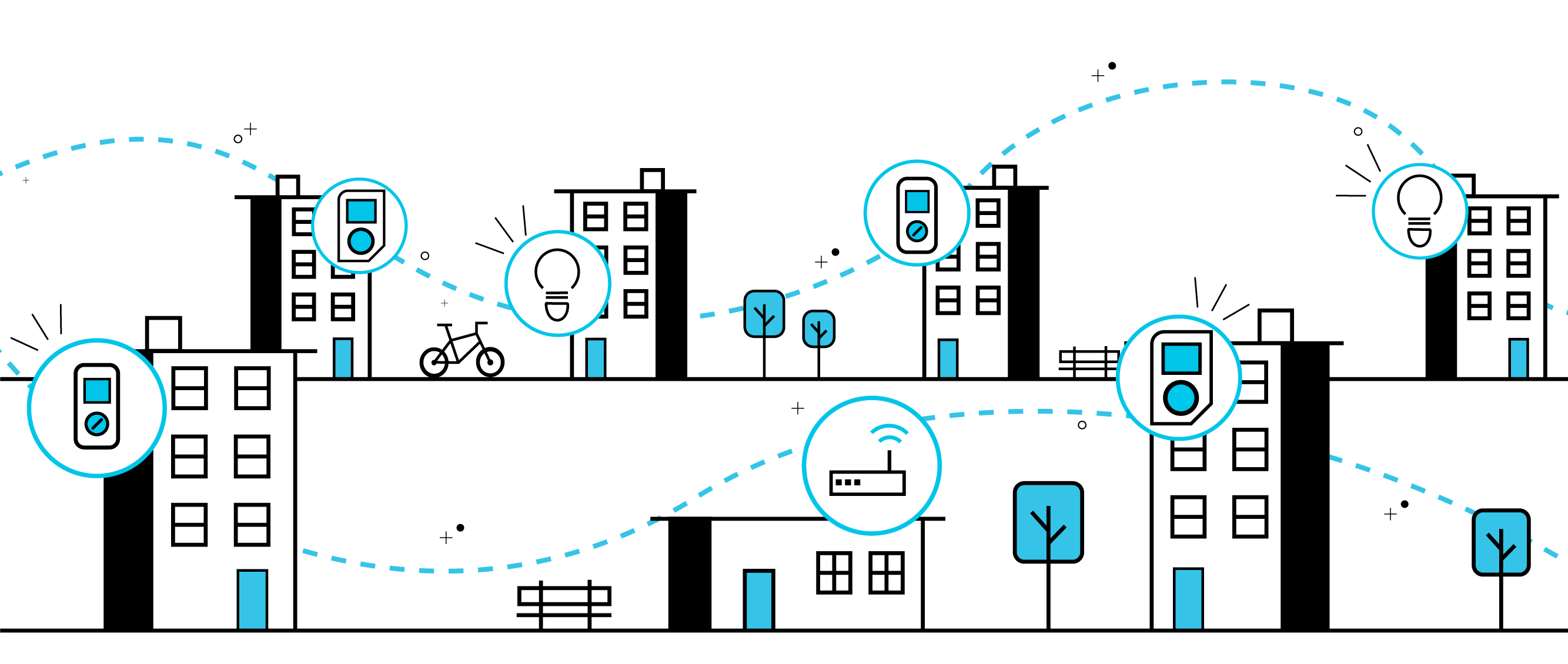The Future of Real Estate Technology and Trends in the Multifamily Industry
The 1962 sitcom, The Jetsons, predicted a future of smartwatches, video calls, drones, digital newspapers, robot assistants, and automatic vacuum cleaners by 2062. Did The Jetsons predict plenty of things, right? Absolutely! However, even the futuristic Jetsons couldn’t have expected some of the real estate technologies we see today in 2023. From rapidly advancing AI to transformative IoT and more, today’s multifamily trends would have seemed futuristic even to the Jetsons in 2062.
What is the Future of Real Estate Technology
The future of real estate technology may sound like a whirl of big tech words in a blender, but ingredients like virtual reality, blockchain, and big data are just a few of many we can expect to see in the coming years. So don’t wait for the dust to settle around these new developments to educate yourself. If you want to avoid getting left out of the best opportunities, the time to jump is now. Those who embrace these real estate tech trends will not only survive this unprecedented technological revolution but will see a flourishing of success.

Real Estate Technology Trends
Trends point us in the general direction of change and development. We’ve identified areas of movement in the multifamily industry you should pay attention to regarding IoT smart technology, virtual leasing agents, and property management software solutions.
IoT in Real Estate
IoT smart locks and thermostats using LPWAN communication rewrite historical network architecture. This breakthrough technology reduces hardware costs without disrupting existing WiFi solutions on the property. Now, owners and operators can benefit from an increased NOI, a higher resident retention rate, and streamlined building monitoring and maintenance. Meanwhile, residents take advantage of energy savings and luxury living.
Virtual Leasing Agents
Virtual reality is changing leasing in more ways than one. Covid increased demand for virtual tours in 2020 and aggressively paved the way for prospects’ high expectations, specifically regarding virtual leasing agents. In addition, personalized and customer-centric marketing will continue to drive occupancy rates as renters are more likely to rent from apartment communities that offer a more customized approach. The data collected by AI identifies patterns in customer behavior to optimize predictive marketing practices.
Property Management Software
Is it bold to say that today's property management systems are already outdated? Why stick to the status quo when you could re-invent property management by capitalizing on big data and AI? Owners and operators should brainstorm dream scenarios where all their pain points magically disappear with a snap of their fingers because, with big data and AI, it's less about what possibilities you have and more about what opportunity you want to embark on first. For example, what if you built AI into your property management software’s framework so managers could focus on the tasks you determined required their attention? You could quite literally rewrite their job description into something more meaningful while AI replaces tedious work like processing prospect applications.

Advantages of Real Estate Technology
Condensed feedback loops, new revenue streams, resident retention, and operational efficiencies make adopting new technology worth the upfront investment.
Better Communication
If it takes a village to raise a child, then it takes an army to run an apartment complex. To run one apartment, let alone an entire portfolio of apartments, one must seamlessly and constantly communicate between multiple parties. Browsing through thousands of emails, carving out hours of face-to-face conversation, and sifting through endless survey data isn’t scalable. So, how do we best tackle communication?
Today’s owners and operators strive to close two separate feedback loops. The first is between residents and property staff. AI leasing assistants are the perfect bridge between customers and onsite operations. A virtual employee can record prospect interest and interactions tied to resident retention and aggregate all those micro patterns and themes into digestible data. Now, property staff can receive customer feedback without having to ask for it because your AI leasing assistant naturally captures the voice of the customer. Property staff has a clear indication of talking points and topics to highlight during tours and other resident interactions.
The second feedback loop is between property staff and management. Onsite teams are inundated with constant prospects and resident requests while adopting ongoing upper-management initiatives. They have priceless feedback that owners and operators need, but what’s most priceless to the onsite team is time, and taking a bunch of it up on informing management isn’t a top priority for onsite teams when they’re in the middle of putting out short-term fires. It’s time to queue up frontline technology that collects big data and labels the significant findings for upper management. That can include smart home technology where resident adoption and usage are measured or marketing performance indicators from virtual leasing agents.
Increased ROI
What does intelligent real estate technology mean to the bottom line? Yup, increased ROI. However, with a multifamily forecast that includes obstacles around rent growth, owners and operators aren’t looking to make a return a decade later; they are looking for a much shorter window. Therefore, owners and operators want to adopt technology that immediately impacts operations and profitability. Quext IoT is the perfect solution, considering that owners profit just months after the installation as new move-ins and retained residents begin signing leases that include resident billing for the smart technology. In addition, other products like Quext Digital Human capitalize on website leads to guide inbound leads through the sales funnel more effectively. So, whether it is marketing, smart home, or AI-powered technology, owners and operators can expect to make a return on their investment.
Maybe the Jetsons would have stayed on air longer if they had incorporated artificial intelligence or smart apartment technology into the show. It looks like 1962 couldn’t have dreamed about what we’d be tackling today in 2023.


